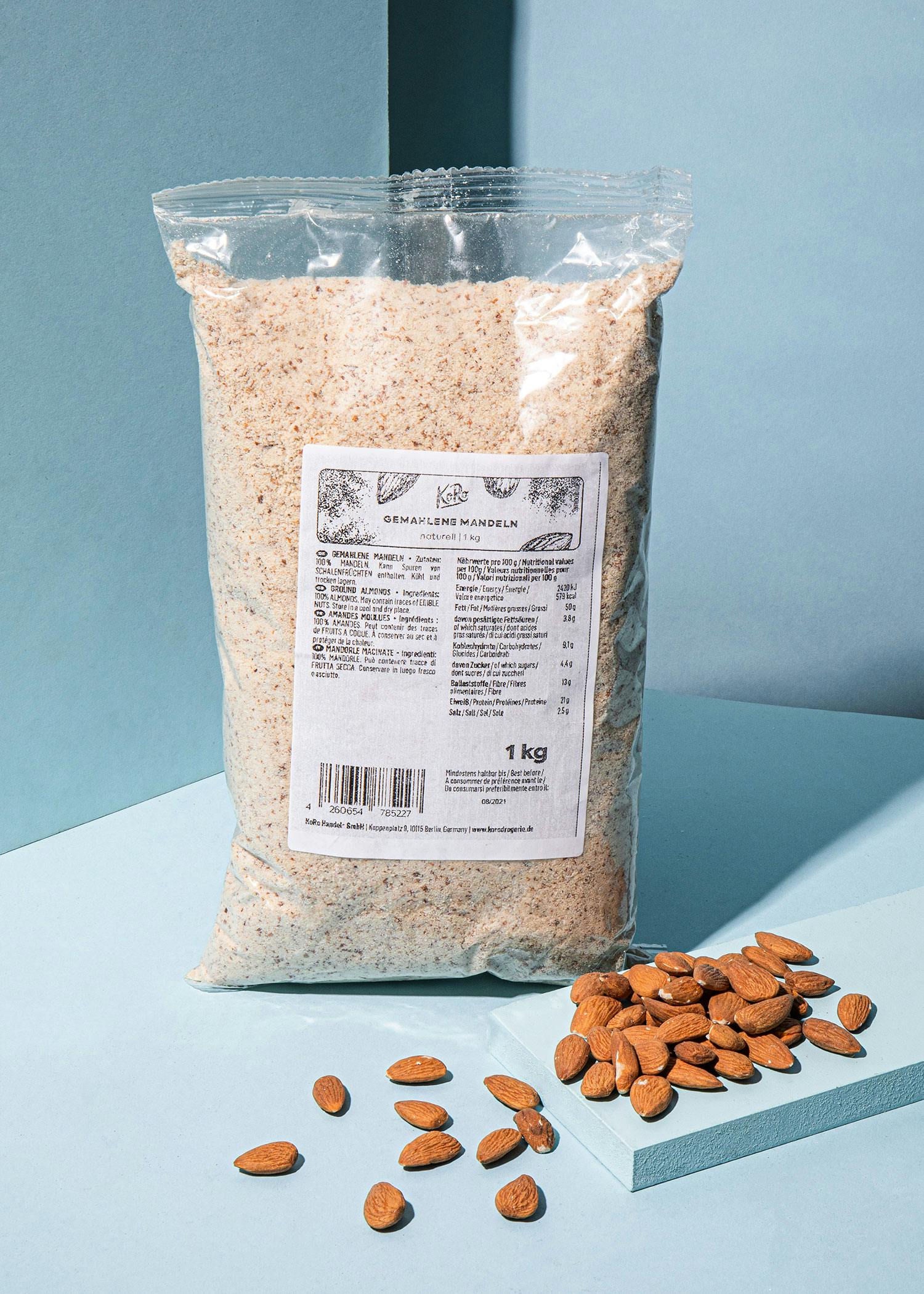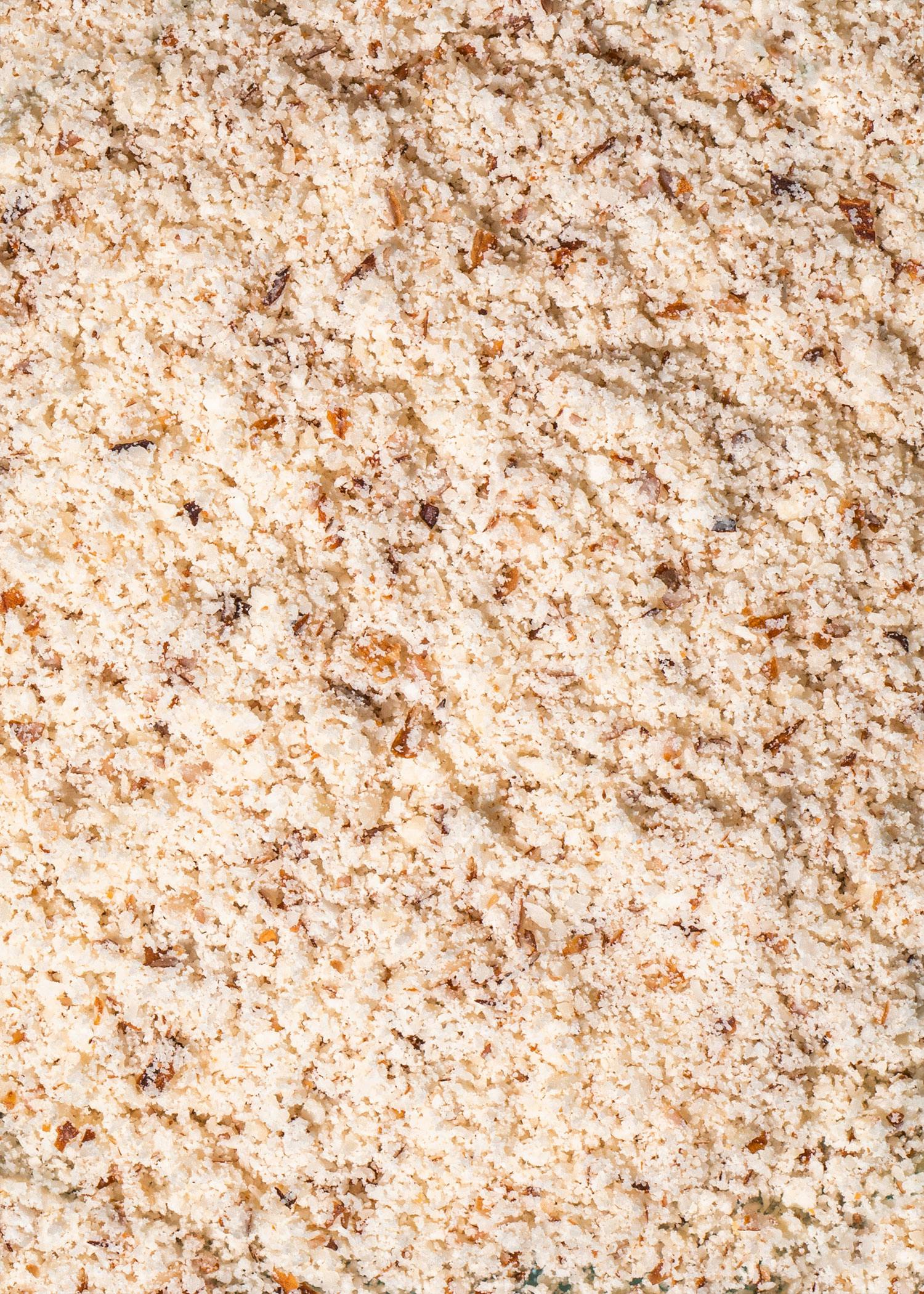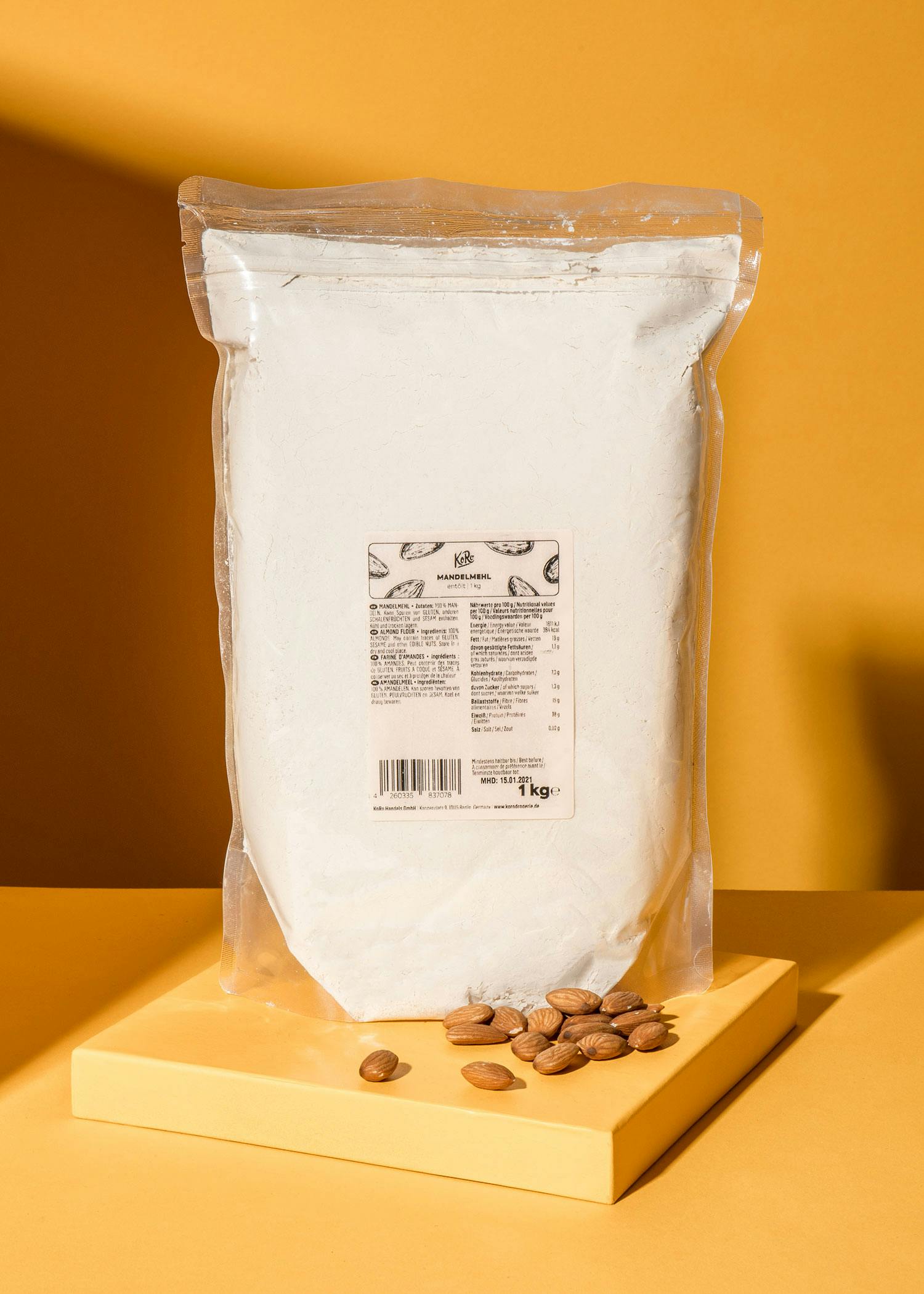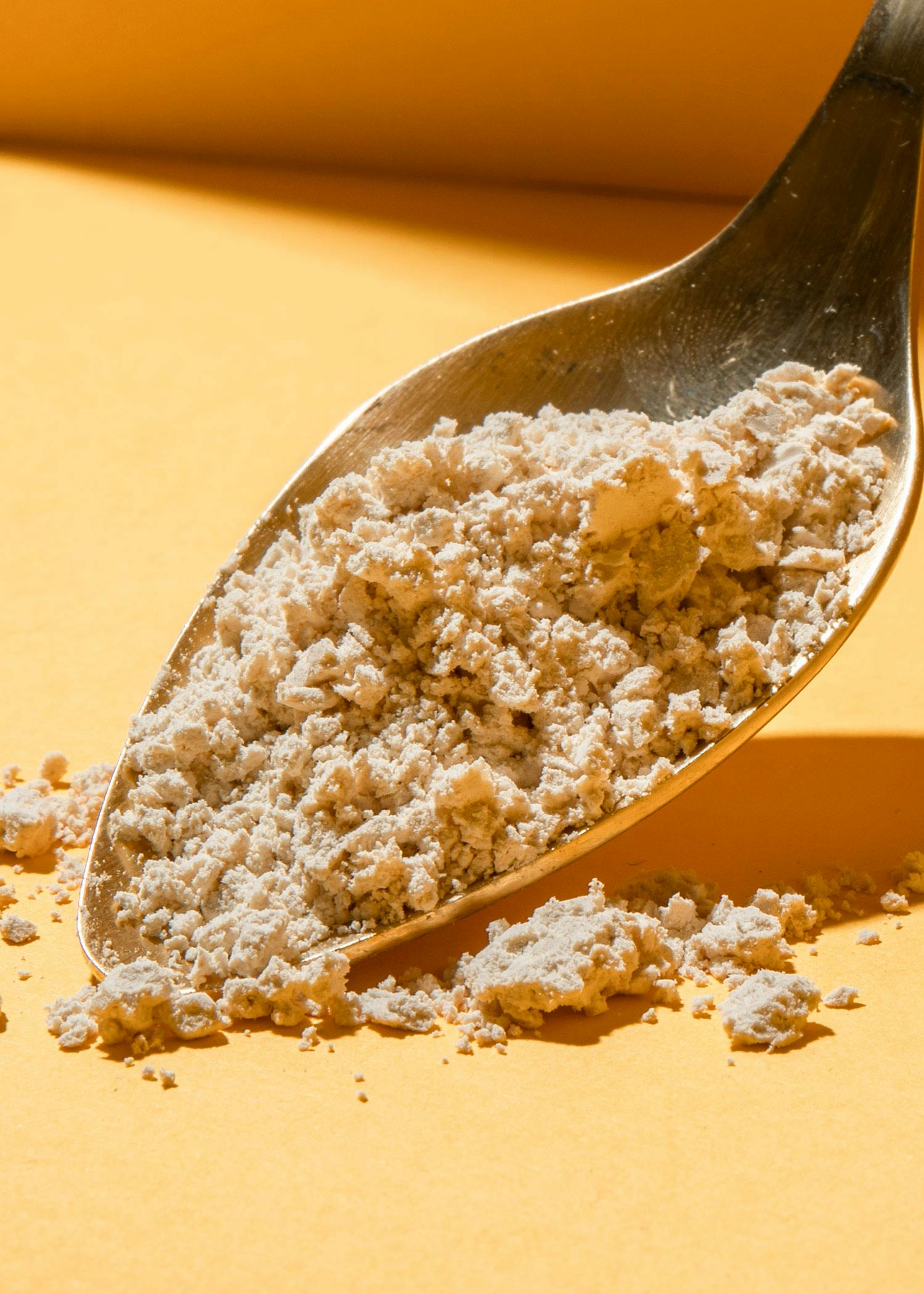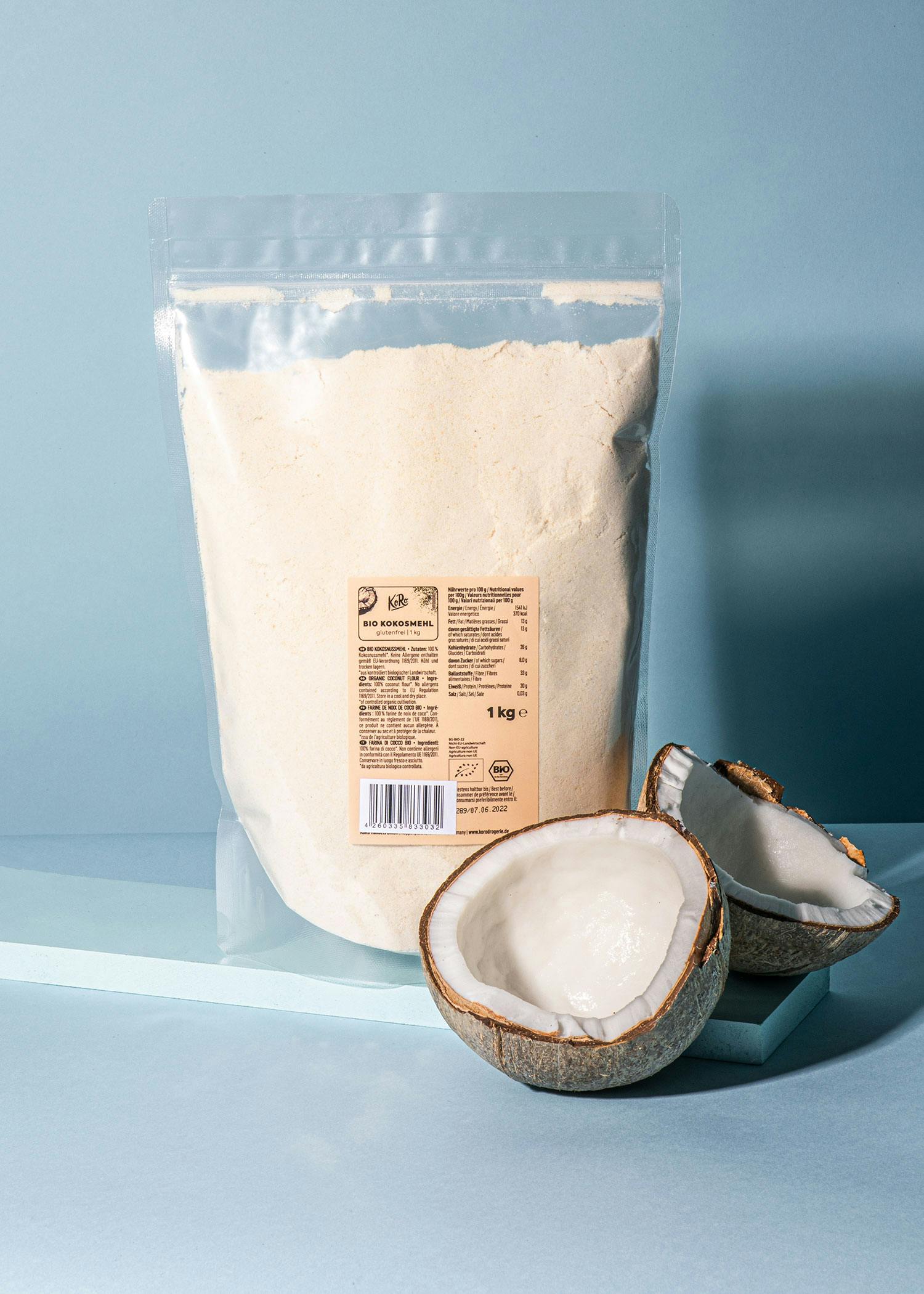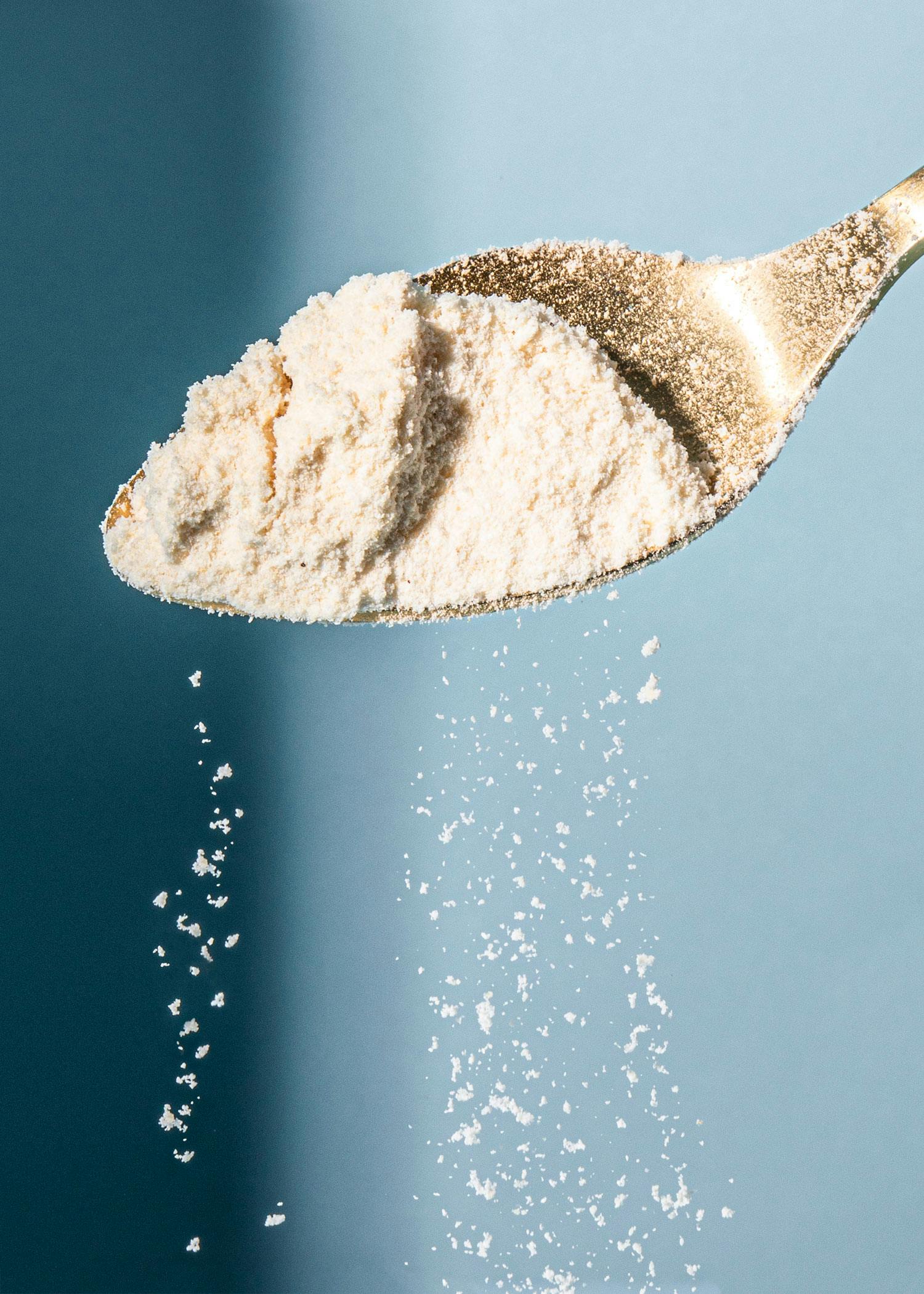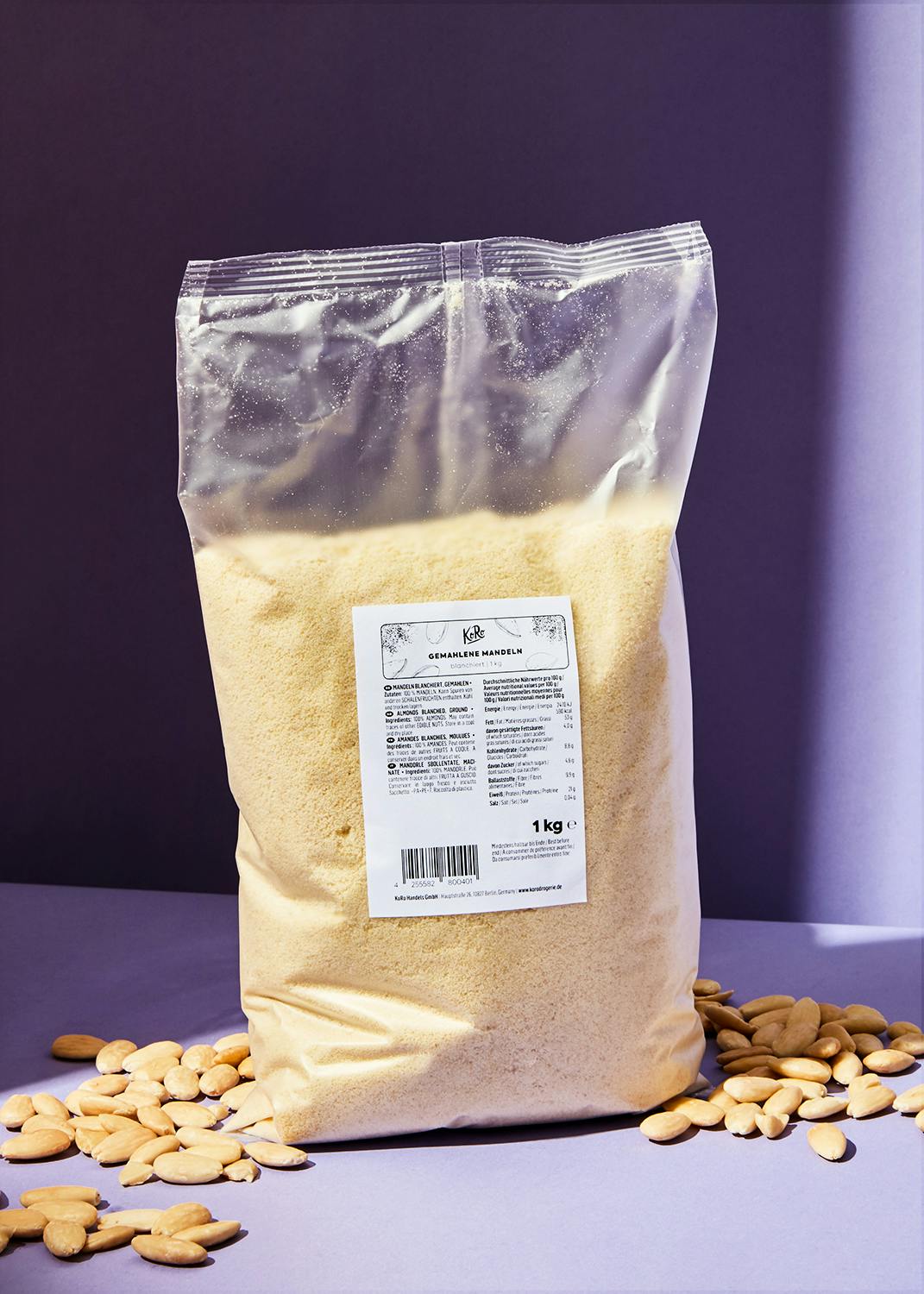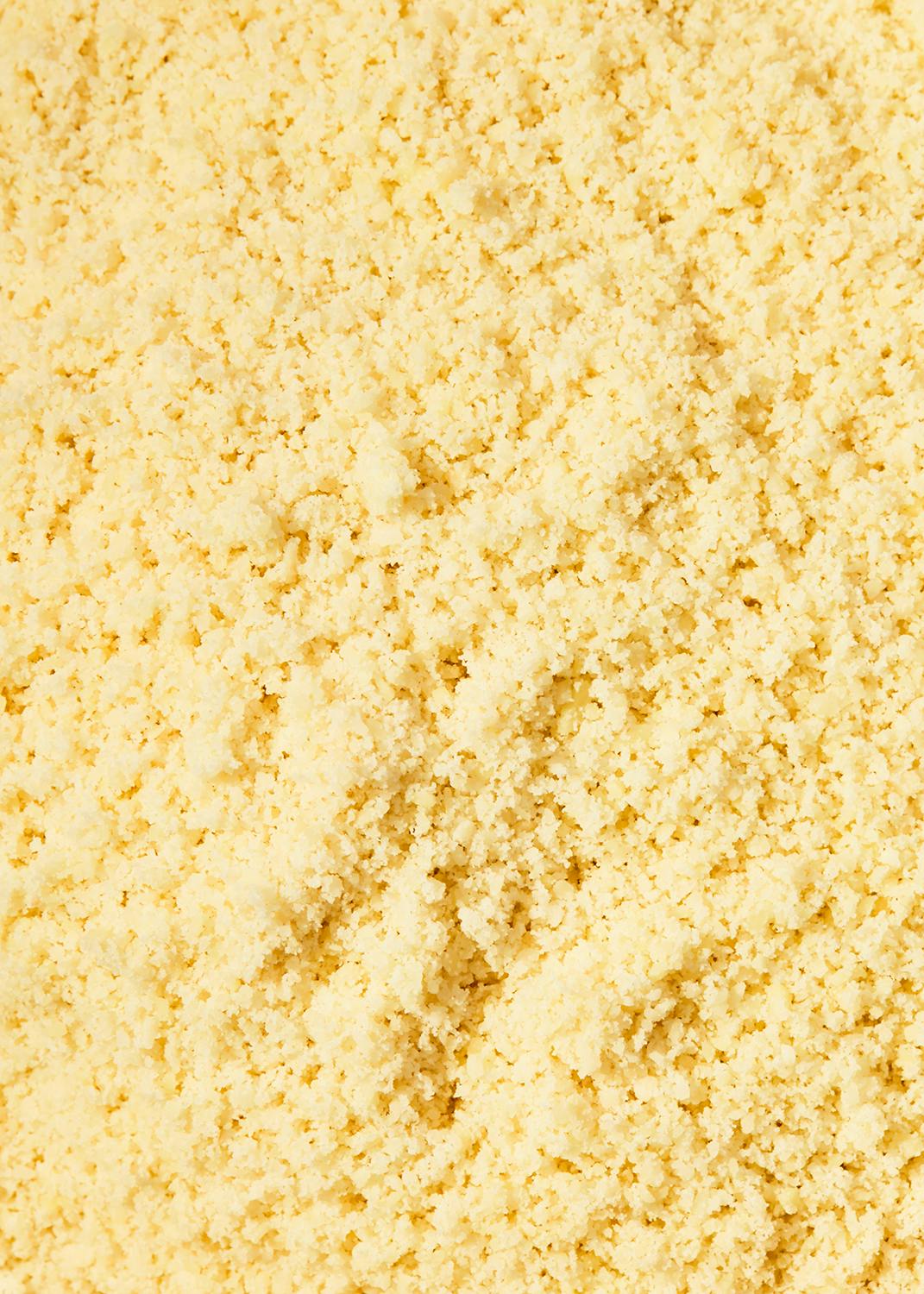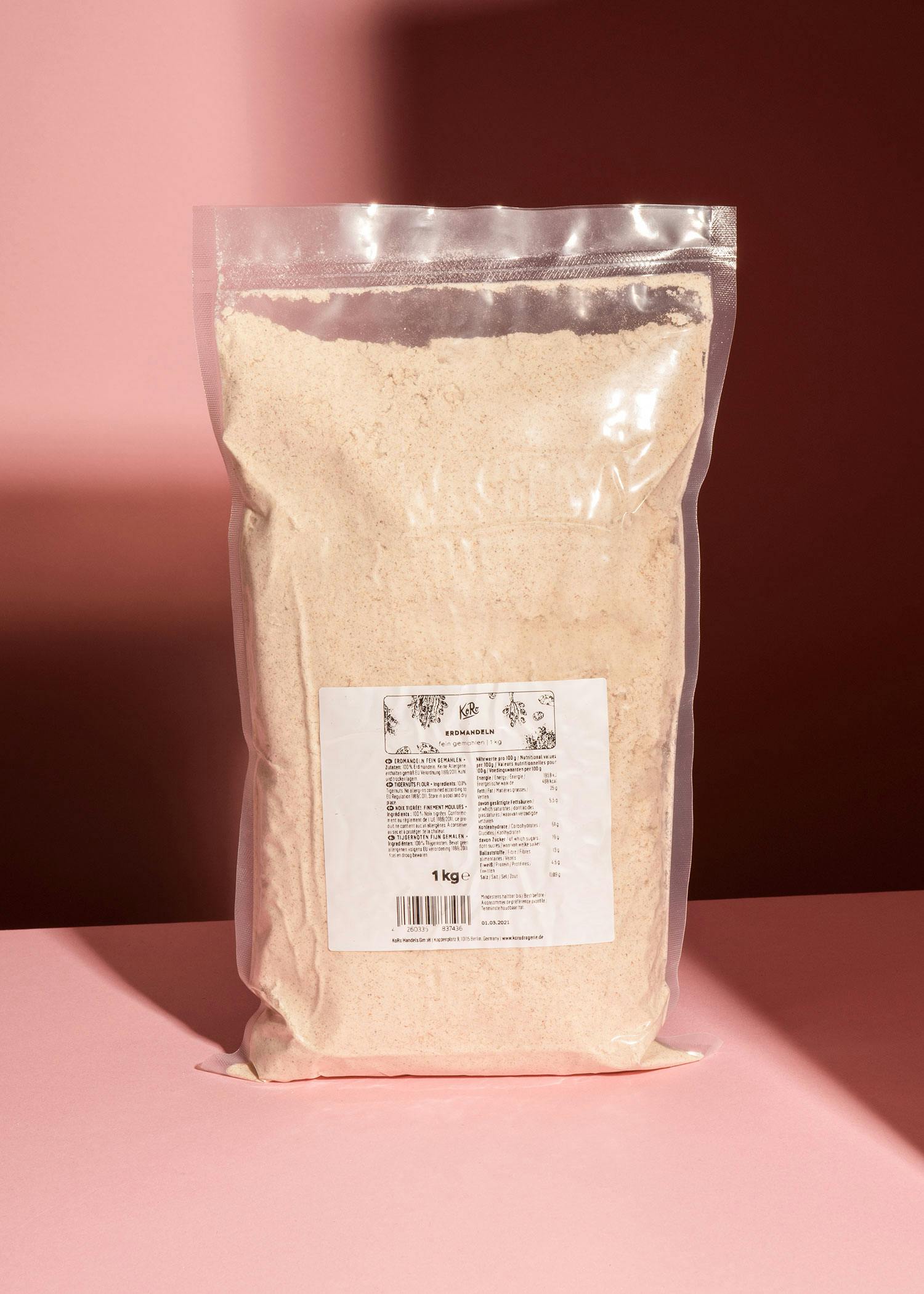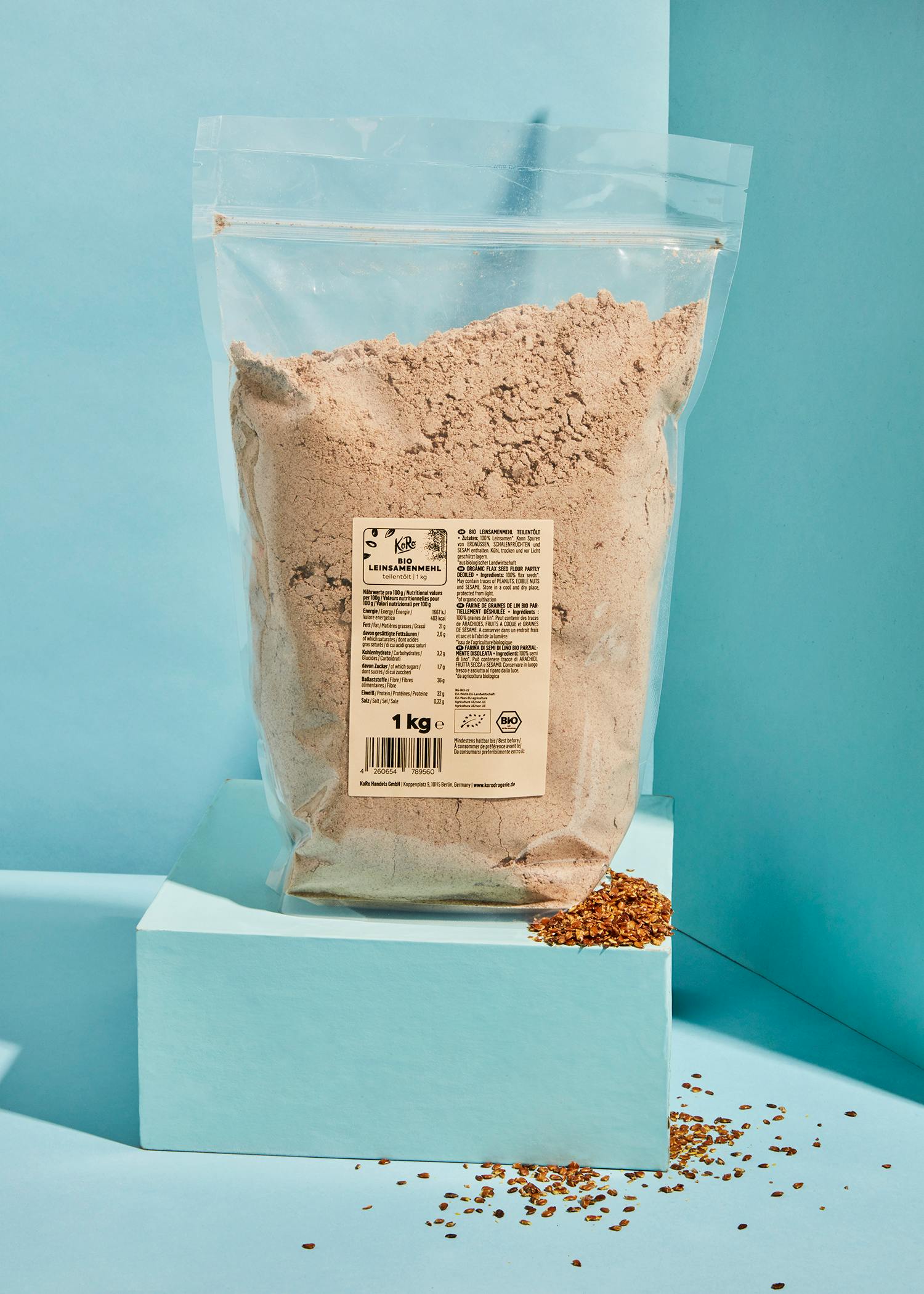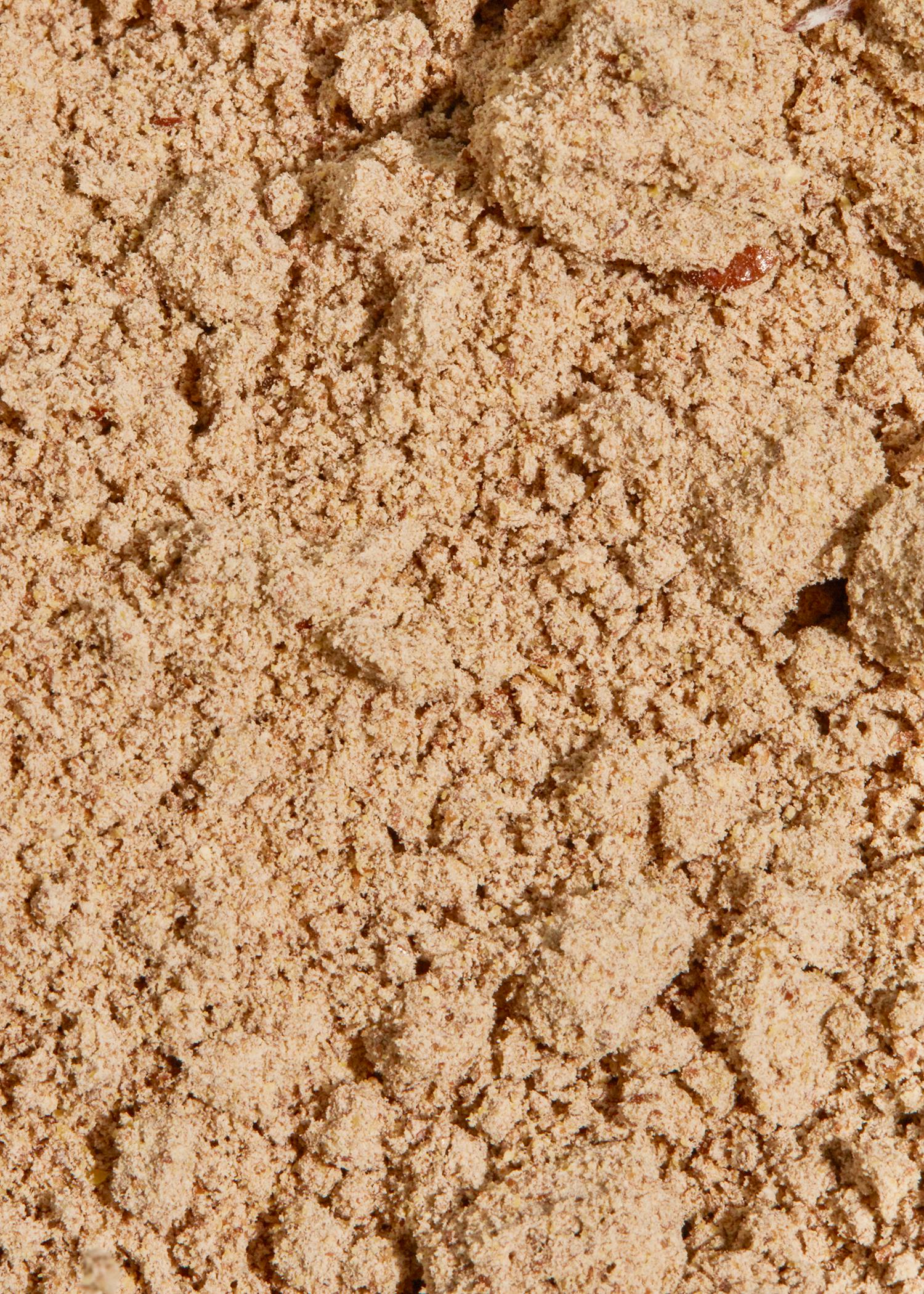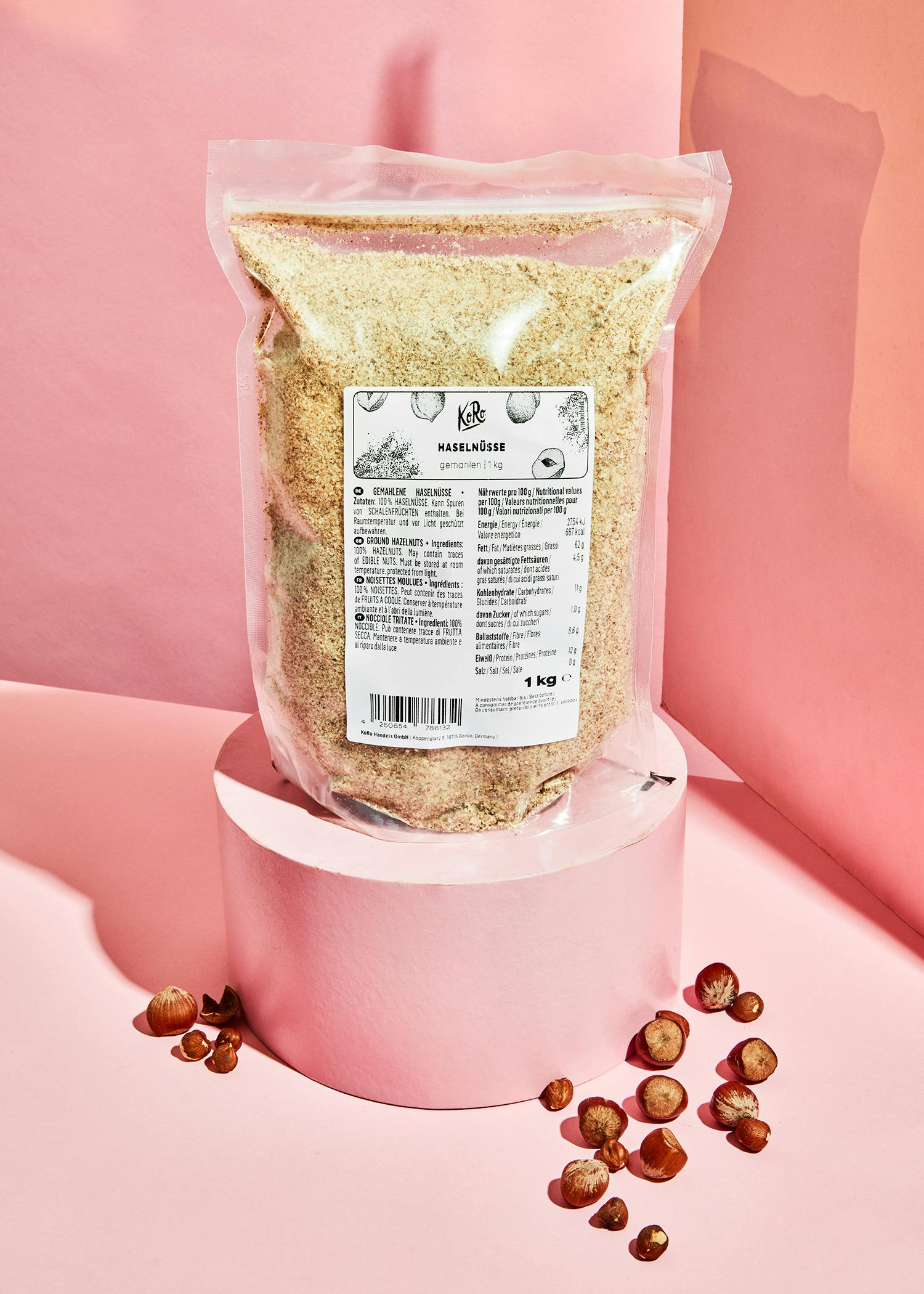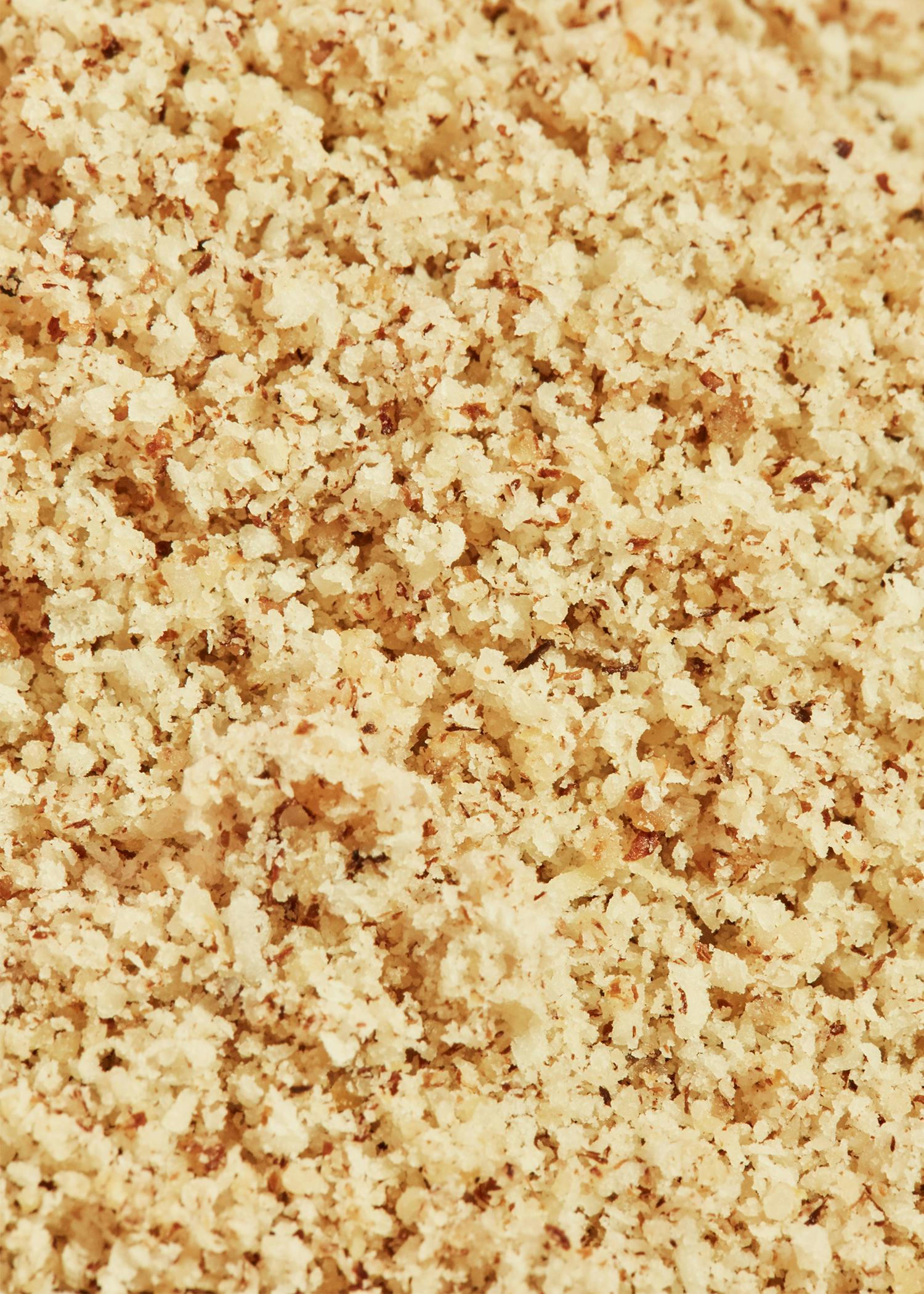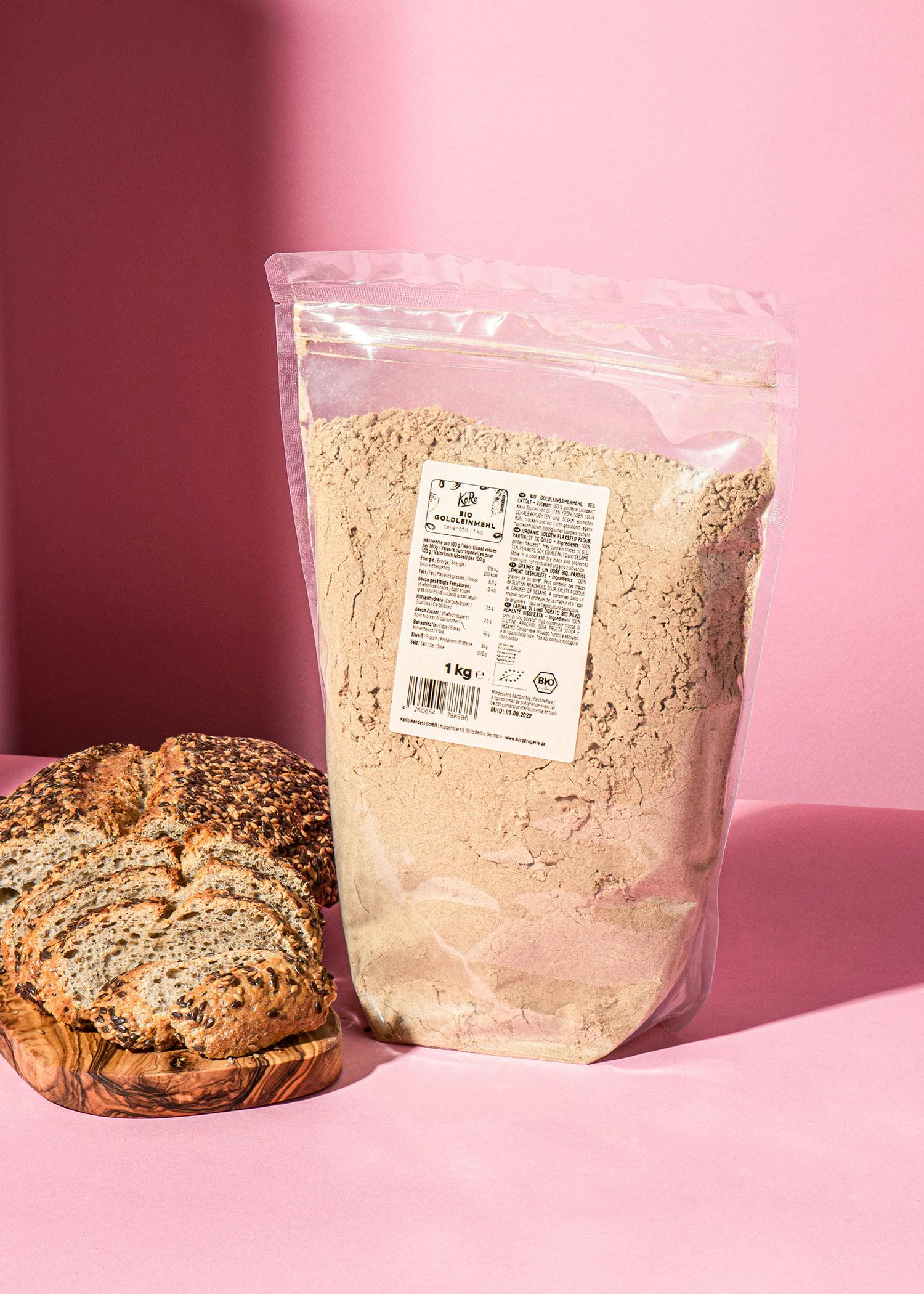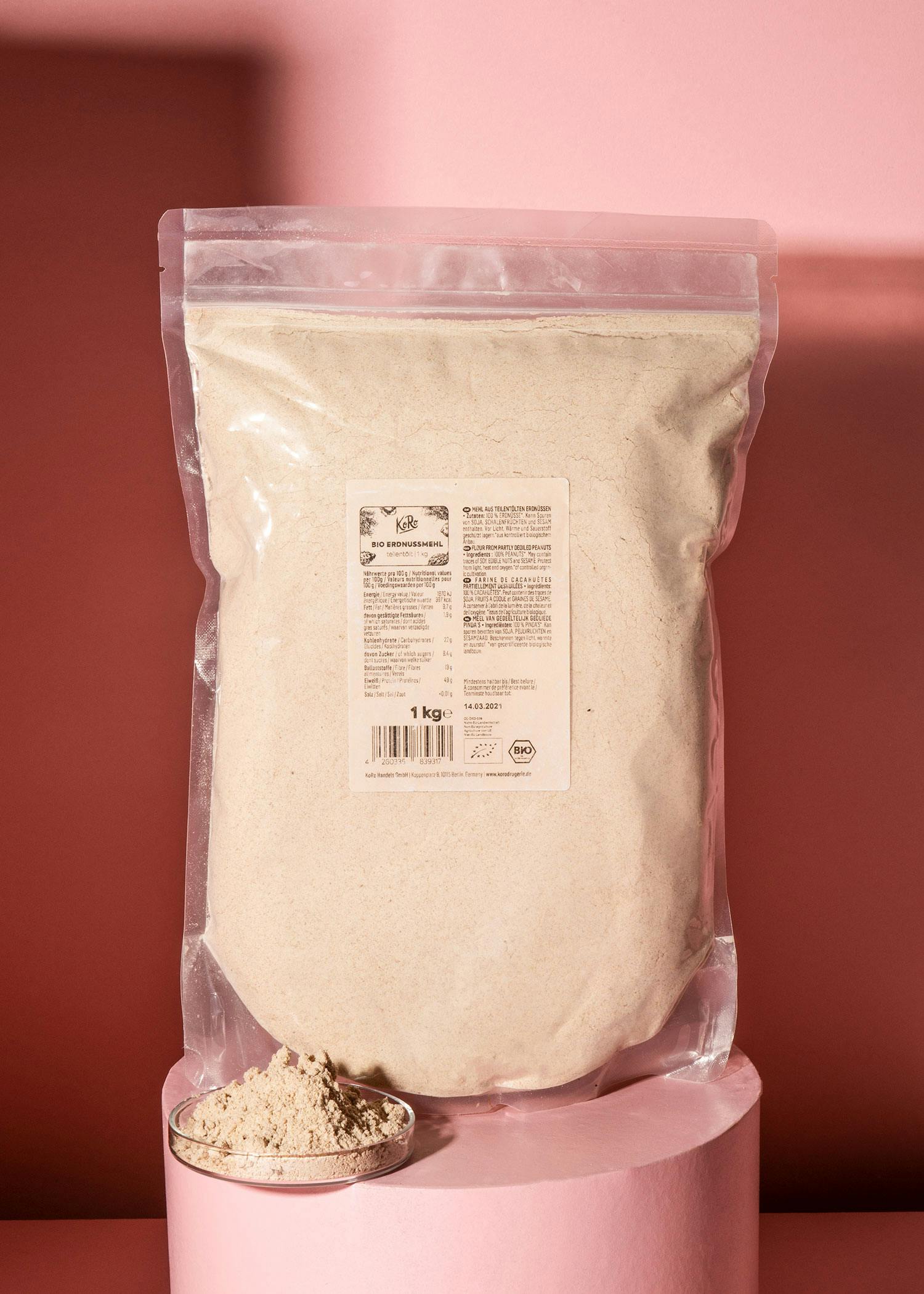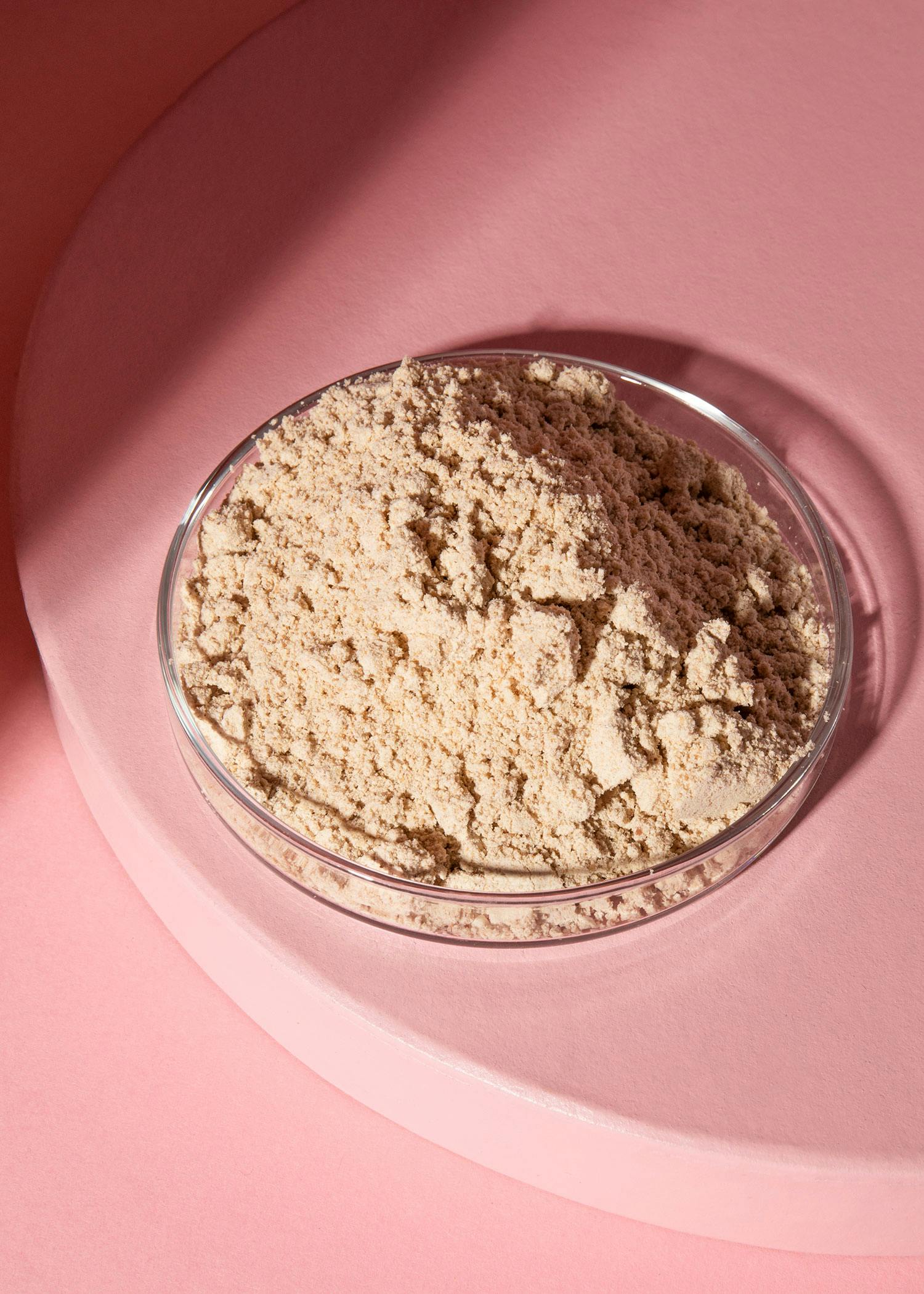Nut flours 9 Article
Buy premium nut flour
Flour from nuts? Among athletes and people following low-carb and keto diets, it is a staple. Nut flour – almond flour, for example – lets you enjoy baked goods and bread while saving yourself a whole bunch of carbohydrates. Not only its nutritional values, but its taste too have made us fall for nut flour. And as love should be shared, we have selected the best-quality nut flours available, and packed them in convenient large-sized bags for you. Find your favourite nut flour at KoRo, and let your culinary creativity run loose!
Our nut flours for you
Partially de-oiled peanut flour, coconut flour, and almond flour are our favourite nut flours, which we offer to you in practical and convenient one-kilo bags. Our coconut and peanut flour come from certified organic agriculture.
What does de-oiled mean?
A nut flour is de-oiled when the largest part of the oil contained in the nuts has been removed with a mechanical procedure, thanks to which the calorie content of it is drastically reduced. Our organic peanut flour is partially de-oiled, and it can replace traditional flour with a 1:1 proportion. Its nutritional values are as stunning as its taste, as our peanut flour has 45 g of protein per 100 g!
Which advantages do nut flours have?
Nut flours have unique nutritional values, and are particularly popular among people who want to reduce their carbohydrate intake, but consume products that are high-fibre.
A good protein source
Nut flours are also very high-protein: our coconut flour has 20 g of protein per 100 g; our delicious almond flour, 37,5 g; and the all-time-favourite peanut flour no less than 45 g! Protein is important to keep you full and satisfied after a meal, and is crucial for muscle health and growth.
A great gluten-free alternative to wheat flour
Until not long ago, it wasn’t so easy for people with gluten intolerances to find good alternatives to traditional wheat flour. Fortunately, today things are quite different. At KoRo, you can find high-quality and tasty gluten-free options, like our organic coconut flour, for example, that is naturally gluten-free! Keep in mind, however, that coconut flour does not replace wheat flour 1:1, but needs to be combined with other (nut) flours.
Nut flours can be low-carb
Our almond flour is the best option, in our selection, for a low-carb cuisine, as it contains just 7,6 g of carbohydrates per 100 g! Traditional wheat flour has close to ten times more. Precisely for this reason, almond flour is a star in the low-carb world – and definitely deserves the fame.
How to use nut flour
You can use nut flour both for sweet baked goods, and savoury recipes – it is a great thickener for soups and sauces, for example.
Tip: when baking with nut flour, we suggest you add one tablespoon of psyllium husk or guar gum to the mix; as nut flour has a minor binding power than regular flour, you might use a little extra help to make sure that your delicious baked goods don’t turn out too crumbly!
With peanut flour you can make an earthy yellow curry, as this flour is going to help your sauce get the perfect level of creamy smoothness, while almond and coconut flour will give your low-carb brownies and banana bread a gentle yet irresistible nutty aroma.
Got questions about nut flours?
We want you to have all the information you need about our nut flour. If you want to know more about a specific one, take a look at the product’s specifications. Should you not find the answers you are looking for, do not hesitate to contact us via email or on our social media pages: we are always happy to help you!
Why are nut flours so special?
Nut flours are very high in protein and fibre and are naturally gluten-free. All these great qualities make them wonderful alternatives to flour from wheat or other cereals. Low-carb cuisine also is employing almond flour more and more.
Can I make nut flour myself?
Sure! To make almond flour, for example, soak your nuts for about 24 hours in water, and let them then dry well. You should blend the nuts in your kitchen mixer for about 60 seconds – if you blend them for too long, you are going to get almond butter instead! Besides, if you want to have a nut flour that is not so energy-dense as the nuts it comes from, you would have to use an oil press. Maybe it is easier to leave this complex work to us, don’t you agree?
How is nut flour made?
Nut flour production is not that complicated. In fact, nut flour is often a by-product of nut oil extraction. The nuts are mechanically pressed and the oil is extracted. What remains is the so-called press cake. This is ground into a fine powder and tada! The nut flour is ready.
Is nut flour good for weight loss?
Even though nut flour is low-carb, its percentage of fat can be considerably higher than in wheat flour. The reason is that nuts are very caloric and high-fat, however healthy. Therefore, nut flours are quite caloric even when partially de-oiled, thus they are not necessarily of help in your weight-loss journey.
Are nut flours high in protein?
Definitely! 100 g of almond flour have 37,5 g of protein, and peanut flour a whopping 49,3 g!
Are nut flours vegan?
Yes, our nut flours do not contain animal products, and are therefore vegan.
Are nut flours alkaline?
Not every nut is alkaline, therefore not every nut flour is suitable for a basic diet. From our selection of nut flours, almond flour is the best option for your alkaline recipes.
How do I use nut flour?
You can bake with nut flour as you would with wheat flour. Sometimes, when their different characteristics would not work well in a recipe, you would need to mix the two instead of replacing wheat flour completely. To begin with, we suggest you experiment with dishes you know, and replace the flour step by step.
Are nut flours gluten-free?
As a matter of principle, nut flours are gluten-free, and our coconut, peanut, and almond flour are naturally gluten-free. But, as they are processed in facilities where also gluten-containing foods are treated, there is the risk of cross-contamination. Other potential traces of allergens are printed on the labels, and listed in the products’ descriptions.
